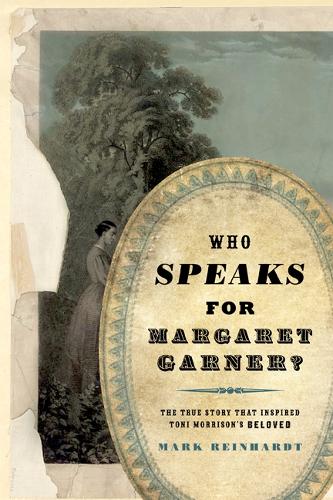
Who Speaks for Margaret Garner
(Paperback)
Publishing Details
Who Speaks for Margaret Garner
By (Author) Mark Reinhardt
University of Minnesota Press
University of Minnesota Press
5th December 2010
United States
Classifications
General
Non Fiction
Social and cultural history
Ethnic studies / Ethnicity
Human rights, civil rights
973.7
Physical Properties
Paperback
320
Width 152mm, Height 229mm, Spine 23mm
Description
A fascinating documentary history of the fugitive slave case that captivated the nationand inspired Toni Morrison's acclaimed novel Beloved. In January 1856, Margaret Garner and her family were at the center of one of the most dramatic and intensely contested fugitive slave cases in American history. Immersing readers in a wealth of fascinating documentary evidence, this book offers an exploration of such contentious issues as slavery and freedom, race and gender, party and region, and law and politics.
Reviews
"Mark Reinhardts thoughtful presentation does American identity a tremendous favor. Although the theater may already have introduced Margaret Garner's sensational tragedy, only now can we follow her excruciating transit through competing jurisdictions and contentious representations. Reinhardt grapples honestly with the fine grain of racial subordination on the eve of the Civil War, paying attention to the silences of forgetting as well as the record of remembering." Nell Irvin Painter, author of Sojourner Truth: A Life, a Symbol
"Of all the fugitive slave cases, the Margaret Garner case was singular. Reinhardts comprehensive volume documents the full panoply of the public argument, in the courts and the popular media, North and South, over the meaning of Garners actions as a freedom-seeking slave mother. Who Speaks for Margaret Garner shows us why any effort to reclaim the ever-elusive Garner today must reckon with those who tried to speak for and against her more than 150 years ago." William L. Andrews, University of North Carolina at Chapel Hill
Author Bio
Mark Reinhardt is Class of 1956 Professor of American Civilization and chair of the Program in American Studies at Williams College. He is the author of Beautiful Suffering: Photography and the Traffic in Pain; Kara Walker: Narratives of a Negress; and The Art of Being Free: Taking Liberties with Tocqueville, Marx, and Arendt.
